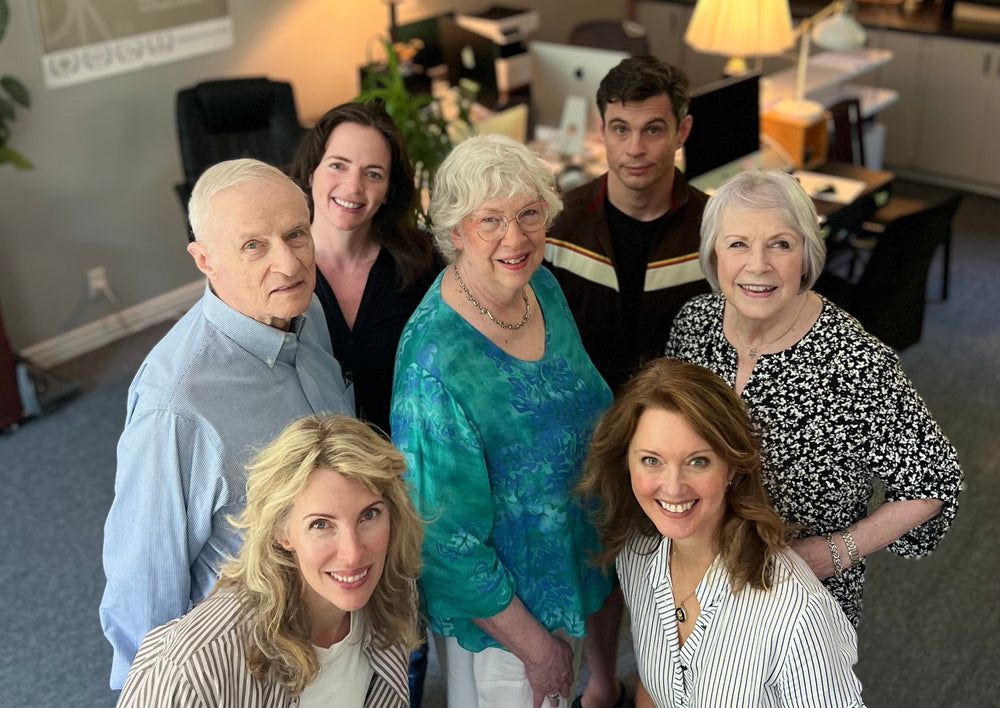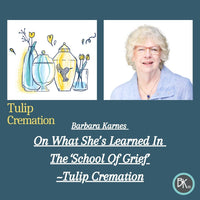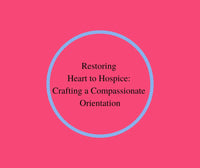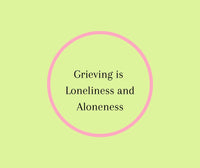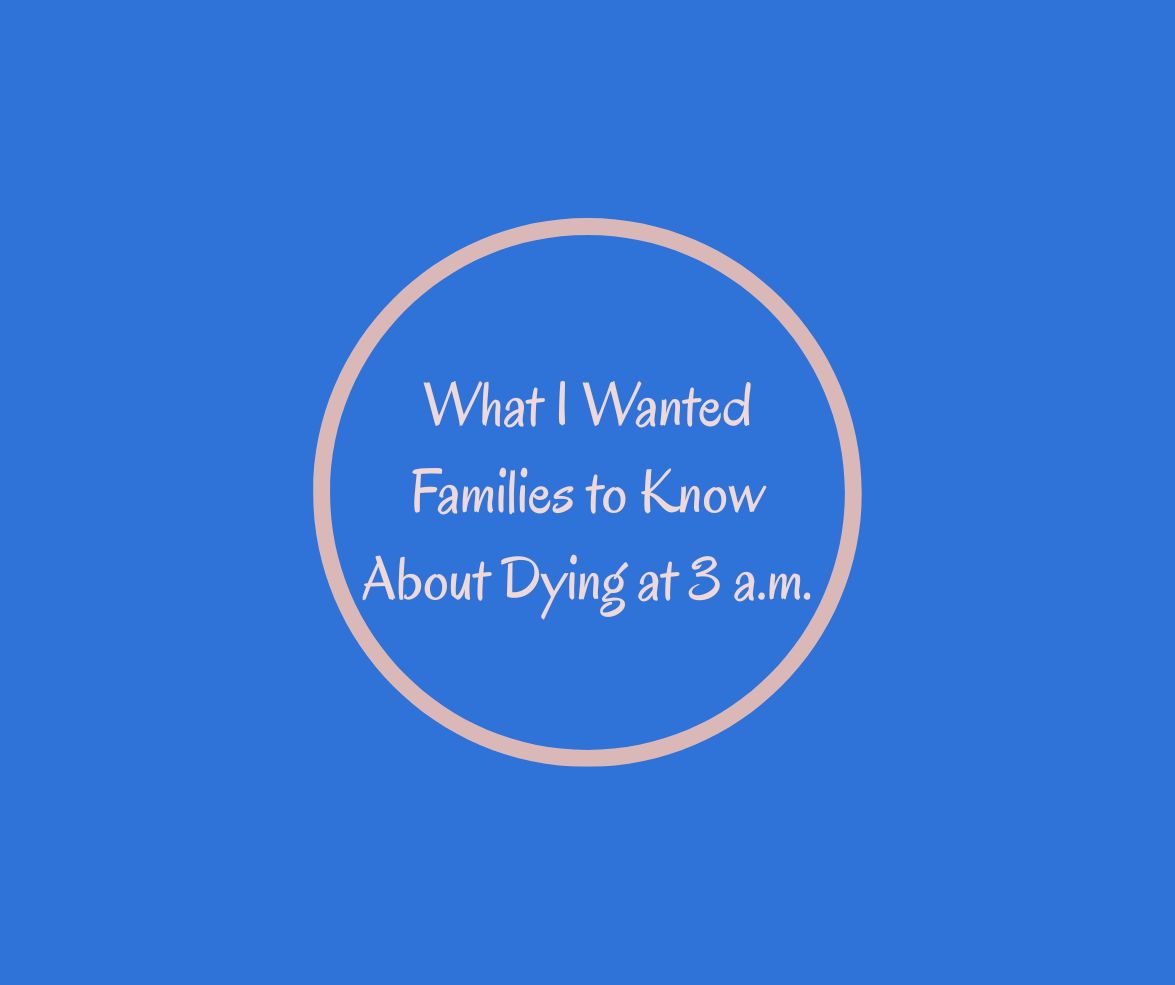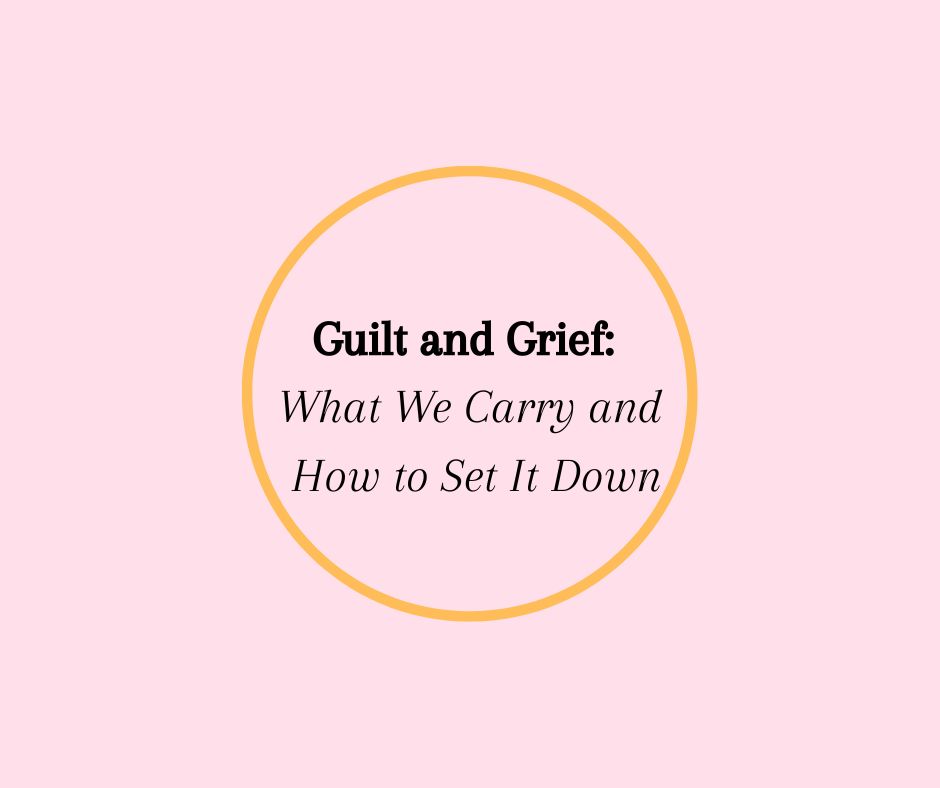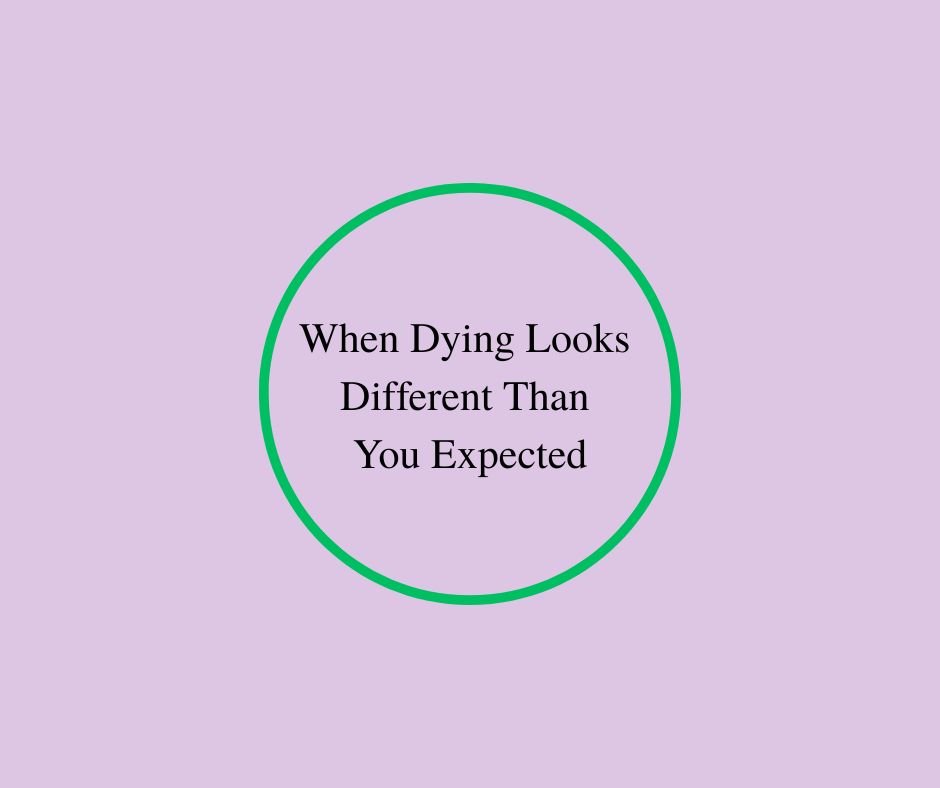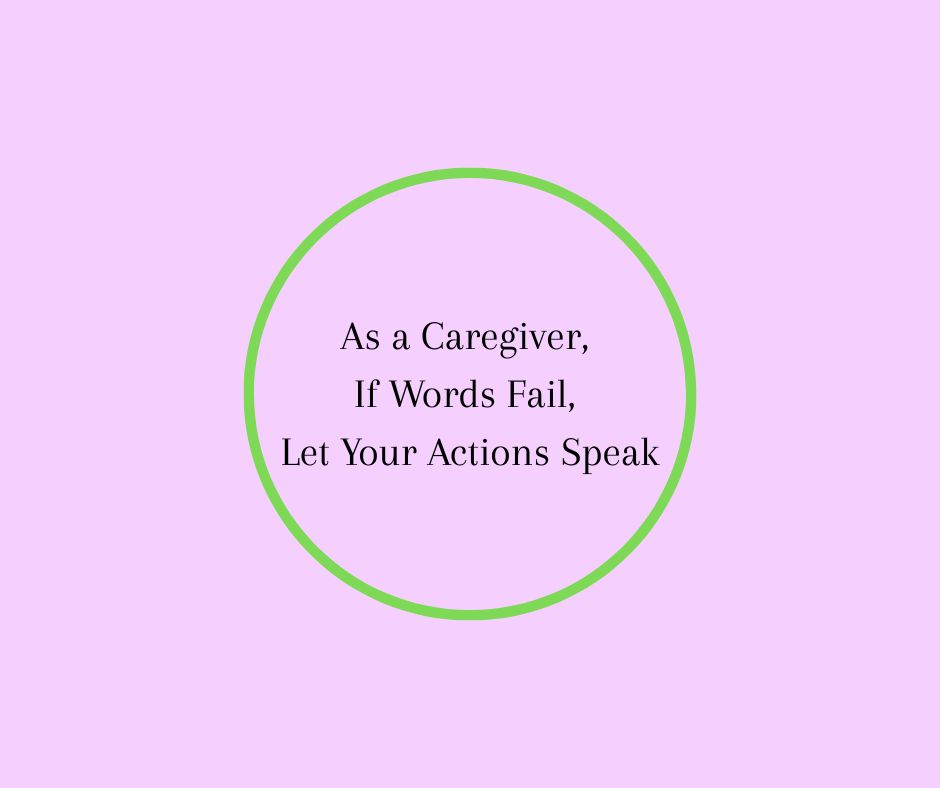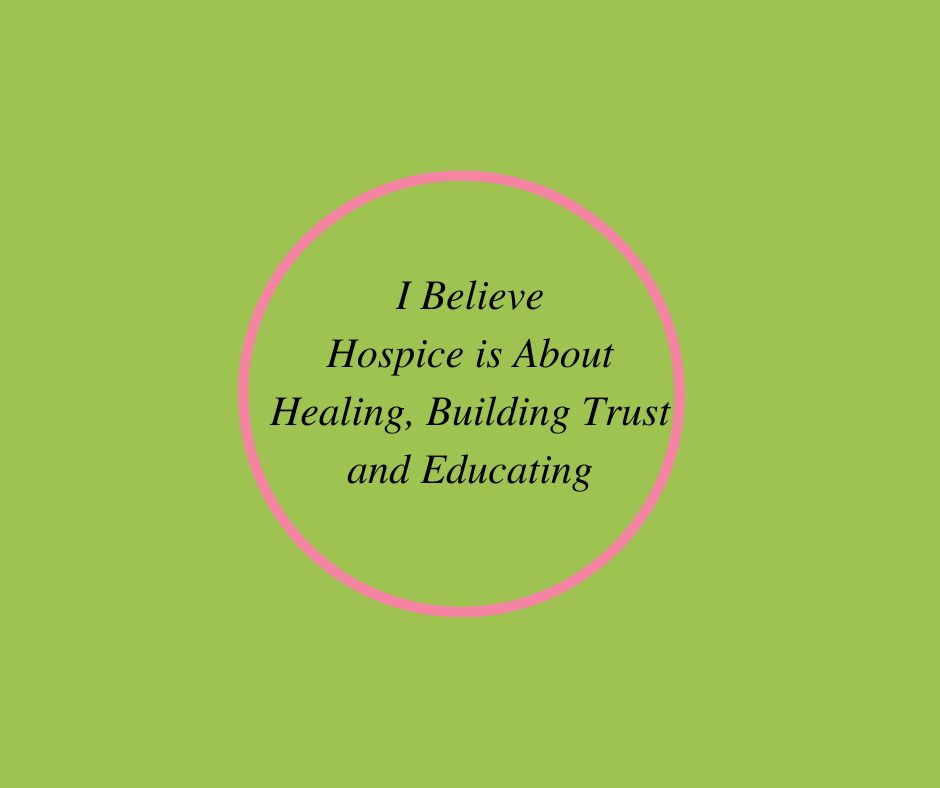
Something to Think About
a blog on end of life
- All posts
- addiction
- advance directive
- alzheimers
- Anger
- anticipation
- anticipatory grief
- Approaching Death
- assisted care
- assisted death
- Assisted Living
- Barbara Karnes
- bereaved
- Bereavement
- burnout
- BY YOUR SIDE A Guide for Caring for the Dying at Home
- cancer
- caregiver
- caregiver fatigue
- caregiver support
- caregiving at end of life
- children
- Clinician
- cna
- comfort care
- communication
- covid 19
- Dame Cicely Saunders
- Death
- death and dying
- death awareness
- death cafe
- death call
- death care
- death doula
- death education
- death midwife
- death of a pet
- death ritual
- dementia
- dementia doula
- diagnosis
- Director of Education
- disease
- DNR
- doctors
- dying
- dying looks different than expected
- dying pet
- dying process
- Dynamics of Dying
- Eating or not eating
- elderly
- Elisabeth Kubler-Ross
- end of life
- end of life doula
- end of life education
- end of life planning
- estate planning
- euthanasia
- family
- family caregiver
- father
- Fear
- Feeding
- Financial records
- Food
- food at end of life
- Funeral
- gift
- Gone From My Sight
- graduating from hospice
- gratitude
- Grief
- Grief Counselor
- grief support
- grieving
- Guilt
- holidays
- Home Care
- home death
- home health
- home healthcare
- Hospice
- Hospice Blue Book
- hospice care
- hospice chaplain
- hospice education
- hospice end of life care
- hospice for pets
- hospice myths
- hospice nurse
- hospice nurses
- hospice patient
- hospice physician
- hospice referral
- Hospice Social Worker
- Hospice Staff
- hospice volunteer
- hospice volunteer training
- hospital
- How Do I Know You ?
- How Do I Know You? Dementia at the End of Life
- Hydration or dehydration
- infant death
- joy
- labor
- labor at end of life
- labor to be born
- life limiting
- life support
- loss
- media
- Medicade
- medical visits
- Medicare
- medication
- medications
- memory care
- midwife
- mindfulness
- moment of death
- morphine
- mother
- My Friend I Care
- narcotics
- New Rules For End Of Life Care
- No Code
- Not Eating
- nurse
- nurses aide
- Nursing facility
- Nursing home
- nutrition
- Old Age
- older pet
- orientation
- oxygen
- pain
- pain at end of life
- pain management
- pain relief
- palliative care
- palliative sedation
- pandemic
- peace
- personality
- Pet death
- Pet illness
- physician
- podcast
- POLST
- prepare for death
- quality of life
- religion
- Retirement Home
- ritual bath
- RN
- sacred
- self care
- seniors
- signs of approaching death
- sleep
- Social Worker
- spanish grief literature
- stages of grief
- sudden death
- Suicide
- Supervisors
- support
- terminal
- terminal agitation
- terminal diagnosis
- terminal illness
- terminal restlessness
- The Eleventh Hour
- The Final Act of Living
- This Is How People Die
- Time
- Time of Death
- trauma
- treatments
- vigil
- visions
- volunteer
- volunteers
- washing the body
- widow
- widowhood
- wife
- Will
- You Need Care Too
Years ago, a 3 a.m. hospice call changed the way I thought about caring for families at the bedside.It led me to write down what I wanted families to know...
In the final days and hours, a person may “wait” for someone to arrive—or let go when everyone is out of the room. Hospice nurse Barbara Karnes, RN, explains the...
Guilt is part of love’s shadow — the echo of what we wish we’d done differently. Healing begins when we release that burden and let how we live now be...
Most of us imagine dying will be quiet and peaceful, but real dying often looks different. Nothing bad is happening — the body is doing the natural work of letting...
Relationships are challenging. We don’t always get from them what we want or need. As death comes, the yearning for what we didn’t get or have with this person increases...
It is hard to comprehend that our special person will die no matter what we do. No matter how many treatments, how much medicine, or how much food we give,...
Why do we hang on to life so desperately? Because it is all we really know. Yes, some of us have spiritual beliefs, that talk of “another life."
Doctor’s office visits for health issues are scary, often confusing, and too often complicated with medical terms we don’t understand. And we are generally ill or have health issues that...
First, there is no perfect relationship. Life is a learn-by-trial adventure. It’s hard work, not always smiles and happiness.
It will never be “okay” for someone we care about to die, to leave us. We will always want those we care about to stay in our lives...
Death from disease and old age doesn’t just happen. There are signs and changes that begin occurring months before death arrives. You can use those signs as a reference indicating...
Working with end of life all these years has shown me how special each day is. It has also shown me the value and the gift of living, doing, and...
Other people seem cheerful, happily planning holiday delights, and we, the grievers or caregivers, are reminded of what we don’t have, of what we’ve lost or are losing...
All the hours of talking, drinking coffee, and eating homemade pies was time spent healing, building trust, and educating. It wasn’t about blood pressures. It was about people, feelings, and...
My hope in writing this blog is to draw our attention to the “unsung heroes” caring for their special person as end of life approaches, as well as to those caring...
People don’t die like they do in the movies. Mom is not going not going to say some profound words, close her eyes and be dead...
I think a big part of grieving is loneliness. Loneliness for our person who has left us but also aloneness in our day to day activities...
Denial by the person with a life threatening illness, denial by the caregiver, and I’ll even add denial by some attending physicians. Denial is often the reaction to diseases that have...
...That caregivers put so much energy, time, love, and concern into taking care of their person that they can become blind to or just plain don’t want to see the...
My husband Jack has been dead eight months. In processing the five months from his diagnosis to his death, what stands out most for me is the tension that surrounded food....
Because of knowledge we’ve lost when people began dying in places other than home, we judge approaching death by the treatments and procedures used in getting people better...




